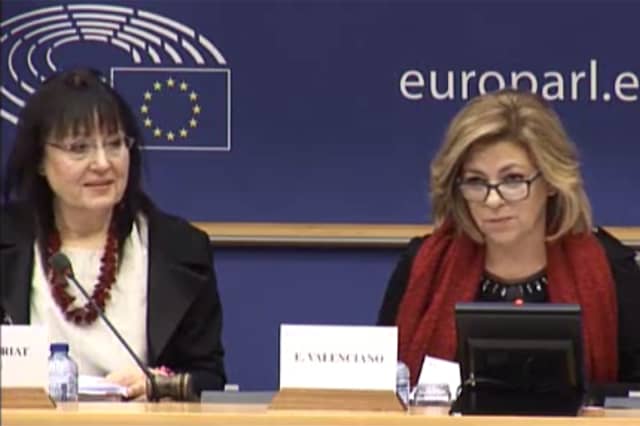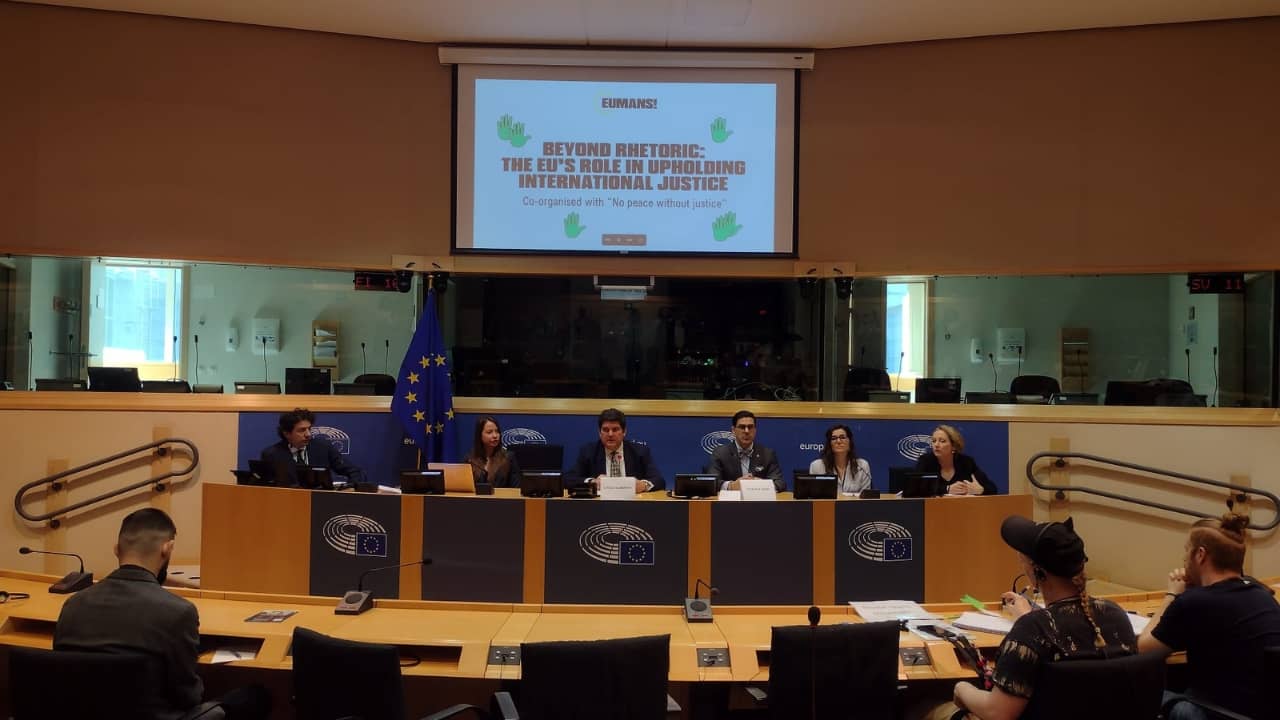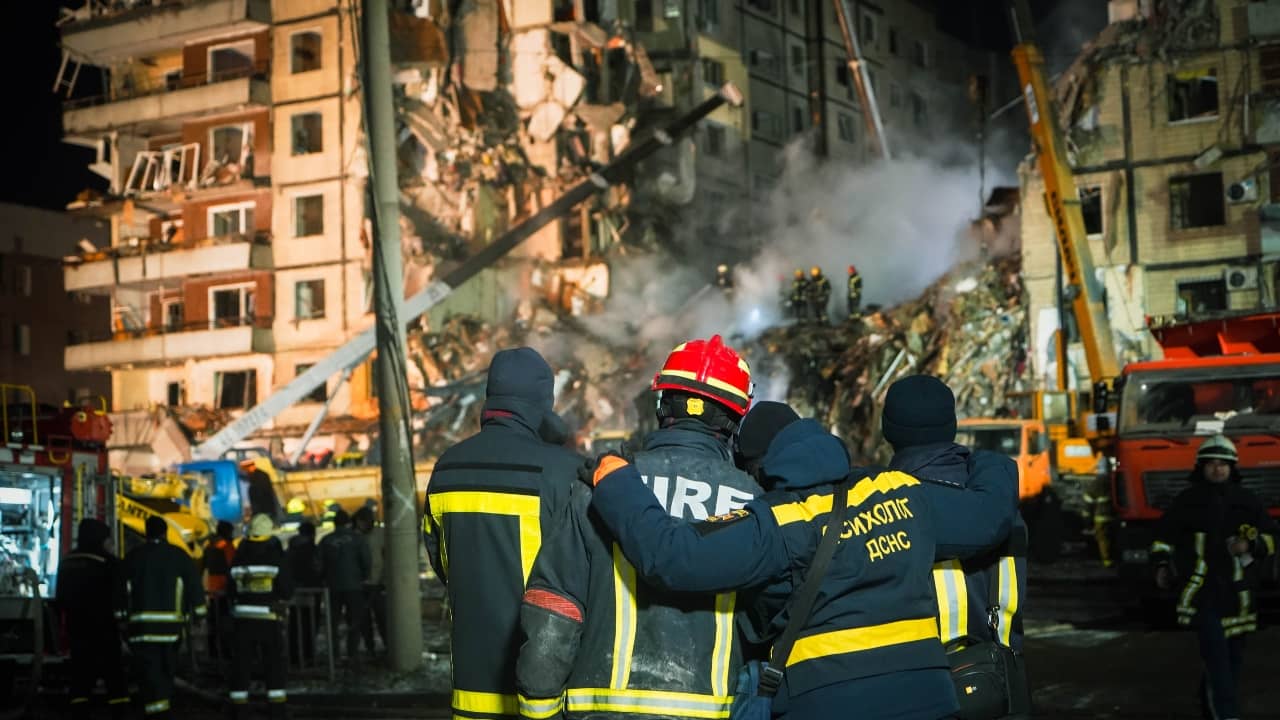
Link to the webcast: http://web.ep.streamovations.be/index.php/event/stream/170125-0900-committee-droi
European Parliament Human Rights Sub-Committee (DROI), 25 January 2017
Speakers:
Ms Laura Passoni, former ISIS recruit
Mr Andrew Clapham, Professor of Public International Law at the Graduate Institute of International and Development Studies, Geneva.
Mr Mark Kersten (Via Skype), researcher and teacher based at the Munk School of Global Affairs in Toronto, Canada; author of the book “Justice in Conflict”
Ms Stéphanie Maupas, journalist for “Le Monde”; author of the book “Le Joker des puissants” on the ICC; specialist on international justice.
During the introduction, Mr. Pier Antonio Panzeri, Chair of DROI sub-committee, MEP (Group of the Progressive Alliance of Socialists and Democrats in the European Parliament – Italy) set for the goal of the exchange of views to look at tools that the EP currently has that can help us look at human rights violations in the context of war criminals, crimes against humanity, genocide and possible shortcomings when it comes to non-state actors. It will serve as an input for European Parliament (EP) report on dealing with human rights violations in the context of war crimes, crimes against humanity including genocide.
Ms Laura Passoni, who was a ISIS recruit in Syria from 2014 to March 2015 revealed that in the ISIS structures, women were thought of as slaves, no rights, no communication, there to have children and make new fighters. She highlighted the objectives by ISIS are mainly:
- to create terror
- to denigrate other religions and also branches of Islam in order to separate them and to acquire more power
- destroy other religions and install Islam in line with the concept from 7th century, completely and rigidly based on Sharia
She emphasized it was easy to join Daesh, but difficult to leave them again. She highlighted that in order to prevent radicalization, effort needs to be made to engage in discussion with them to de-radicalise the youth who might be tempted to participate. It is important to explain what Islam is, to engage in dialogue with all potential recruits and to clarify misconceptions about the religion
Mr Andrew Clapham addressed two questions: 1) How can we achieve accountability for human rights violations, where the courts have no function and the ICC has no jurisdiction? 2) Where does the doctrinal debate stand on the accountability of armed non-state actors for their human rights violations?
- Re 1st question – in relation to individual criminal responsibility, there are 4 separate ways forward from a legal perspective:
1) ICC seems to have no jurisdiction in Syria, but it is not correct, many individuals fighting for the non-state actors do already fall within the jurisdiction of the ICC due to their nationality (Jordanian, Tunisian, British, Dutch, Australian, German, French citizens, etc.). The ICC Prosecutor suggested that because the leadership comes from Syria and Iraq, it feels it not appropriate for her to move forward. To be clear it is possible that either a new government in Syria or government could use 12(3) declaration under the Rome Statute that could operate retroactively (back to 01 July 2002 when the ICC was established), so all nationalities would fall within the jurisdiction of the ICC. Either new government in Syria or the government in Iraq can decide to recognize jurisdiction of the Court, so that all nationalities will be under jurisdiction, so the crimes would be prosecuted. The most important thing is that evidence should continue to be gathered irrespective of how imminent prosecution seems.
2) Creating a brand new international criminal tribunal tailored to these problems, many of the crimes are crimes of universal jurisdiction, new tribunals could be set up even without the Security Council (UNSC) by a number of states who want to do it.
3) Most promising route is prosecuting people in national courts outside of Syria, even if there is no particular link to these countries (Sweden/ Germany/ France has already prosecuted fighters for torture and execution of their prisoners).
4) Future set of trials in Syria – a long-term project, but evidence gathering has already been undertaken. The European Parliament had a hearing on 13 October in the Committee of Legal affairs and women’s rights discussing projects of new tribunal in Syria.
Re 2nd question – non-governmental organisations (NGOs) and the United Nations continue to collect evidence on violations committed by both sides, however, it is important to consider that violations by the armed groups and non-state actors are violations of International law.
Mr Mark Kersten stated that Syria is seen as a blind spot for justice and accountability. It would be accurate to say that no situation has ever received so much activity talk on justice and accountability, yet has a few tangible results.
He referred to 7 approaches explored with regards to justice:
1) Trials at the ICC– however, there is deadlock at the UN Security Council (UNSC), which has been prominent. There is also ongoing conversation whether the relationship of the UNSC and the ICC is a positive one, given that UNSC tends to politicize mandate of the ICC and not a single individual referred to by the UNSC was actually convicted or brought to The Hague.
2) Commission of inquiry on Syria has been running for 5 years, it provided the most authoritative account noting that ISIS crimes against Yazidis constituted genocide.
3) There is ongoing human rights documentation (Human Rights Watch, etc.).
4) There is a discussion of a possible creation of an ad-hoc tribunal, but there are political barriers the Iraqi government will not allow to create any kind of tribunal, that would eventually have a mandate to cover its own conducts in Iraq.
5) Commission of International Justice and Accountability (CIJA) – a private NGO, funded by numerous states, European states, it’s very special, it’s much higher than public organisation, it has investigators on the ground in Syria collecting linkage evidence. For the first time, there this form of process which collect the evidence without a court-run institution has been existent- situation which may lead to the creation of the court.
6) The independent and impartial mechanism – the most active the General Assembly (UNGA) has ever been with regards to international criminal justice and attempting to find some kind of mechanism, for the time-being it will simply collect evidence.
7) Domestic processes – Germany, Sweden have had some cases, they remain very limited, much more could be done based on the widespread belief that a number of high profile perpetrators of war crimes reside in European states.
More can be done in linking immigration to war crimes prosecution. In Canada, the immigration authorities were able to detain and evict senior war criminals and individuals who have allegedly committed crimes against humanity, rather than transfer them to any kind of judicial system or investigation in Canada. This resonates in European capitals, 30 alleged war criminals were found amongst immigrants in the Netherlands among the immigrants, however, we do not know what is the follow up to this.
Ms Stephanie Maupas posed a question whether the ICC should be able to investigate on the basis of external investigation. It has encountered difficulties internally and there is also the choice of criminal law policy which has been made by successes of different prosecutors (Kenya, Sudanese rebels, etc.). She suggested that prosecuting the ISIS might be done outside the borders (as in Libya). She raised a question that if the intention of these groups is to have a radical version of Sharia applied, should we not have a tribunal set up on that basis to prosecute different groups, those who have allegiance with IS?
Regarding the Impartial and Independent Mechanism (IIIM) for Syria, established in December by the UNGA, she raised her concerns that there is distrust towards this mechanism, so one of the questions is - should this mechanism be funded (support by several Gulf states) in a way that gives the impression that it’s not independent?
She emphasized that the community needs to be very careful when setting up the international judicial system to avoid distrust that the body in question is political in nature and the effect of its actions could be lessened by that.
During the following discussion amongst the MEPs, Ms. Barbara Lochbihler, MEP (Group of the Greens/European Free Alliance – Germany, Convenor of PGA International and Human Rights Program) inquired as to whether EU institutions are funding the NGOs who do relevant investigations and the findings qualify to bring the perpetrators to the ICC and ad-hoc tribunals.
She mentioned that the EP has a very strong position based on resolution of 2011 to strengthen the ICC but the AFET committee also needs to find the most appropriate ways to develop this policy. She also referred to the possible future prosecution regarding the situation in Iraq and posed a question as to which kind of tribunal and criminal justice shall the EP promote, that would be capable of handling all crimes committed in Iraq –
She stated that it seems that hundreds of new recruits are ready to join the cause of violent extremism fueled by a radically distorted and mistaken interpretation of the religious belief. She made a reference to extra-judicial killings, e.g. of Osama Bin Laden, or, in the future, Al Baghdadi, posing a question whether it is true that IS used these killings to recruit new members.
Laszlo Tokes, MEP (Group of the European People's Party- Christian Democrats) – Hungary) referred to Ms. Passoni, raising a question about what can be done to help young people who are on the way to radicalization as very often, tolerance is being confused with allowing evil to propagate, as “it is not tolerance to just stand by when we come across these unacceptable things”. He shared his opinion that, as Nuremberg trials or an ad hoc tribunal after the Balkans war, perhaps the best option would be to create an ad hoc tribunal.
EEAS representative responded to Ms. Lochbihler, MEP about organisations collecting evidence, clarifying that EEAS has been funding the Commission of International Justice and Accountability from the beginning (grant of 1,5 mln for functioning and set up, work on capacity building to ensure necessary tools and independence). Since then they have been funding specific projects in Syria on evidence collection and are looking at funding work of CIJA in Iraq.
Ms Stephanie Maupas responded to the question about investigations carried out by NGOs in the field – they have been financed by the Americans and the United Kingdom as well, those investigations enable evidence to be gathered. Regarding referral for Iraq, she addressed the possibility of making a referral to a single region, as the UNSC made a referral to Darfur.
Mr Mark Kersten referred to the Issue of new international instruments and whether they’re necessary. According to Mr. Kersten, one of the most remarkable strengths of justice and accountability is the rebirth of ad hoc tribunals. Since 2014 tribunals for Kosovo, Central African Republic, etc. – the point is not to displace the ICC, it’s about having a multitude of options, trather han singularly focusing on one.
- Re aiding war crimes – he raised a question on how to deal with actors who engage in the oil market with ISIS and members of Daesh? How can these markets and economies be disrupted?
He concluded by saying that there’s clearly no perfect solution in justice and accountability anywhere and therefore, we should not be looking for a perfect institution for Syria or for any particular situation.
Mr Andrew Clapham concluded by stating that there is no need to create new crimes– the crimes that have been committed they are already crimes under the international law, there is no need to create new crimes to be able to prosecute them. He referred to the new instrument being negotiated in Geneva, with regards to crimes against humanity, that will be put in a treaty for customary international law, in drafting that instrument it would be important to widen the net to cover anybody who might be assisting to crimes against humanity, it is important that legal persons or organisations are also prosecuted.
He mentioned that some of the radical groups have managed to fund their activities by pillaging and luting activities and selling them in the West, or engaging in arms trade. Therefore, it is important to prosecute legal persons and companies for CAH; or for assisting ISIS in commission of crimes.
He raised some of the examples of the prosecutions by virtue of the fact that international crimes are not subjected to the statute of limitations:
- Prosecution in UK of Faryadi Sarwar Zardad who had been Afghan warlord, turned up in London, prosecuted for torture and hostage taking and sentenced for 20 years.
- International Criminal Tribunal for Rwanda (ICTR) provides also many examples of non-state actors being prosecuted.




